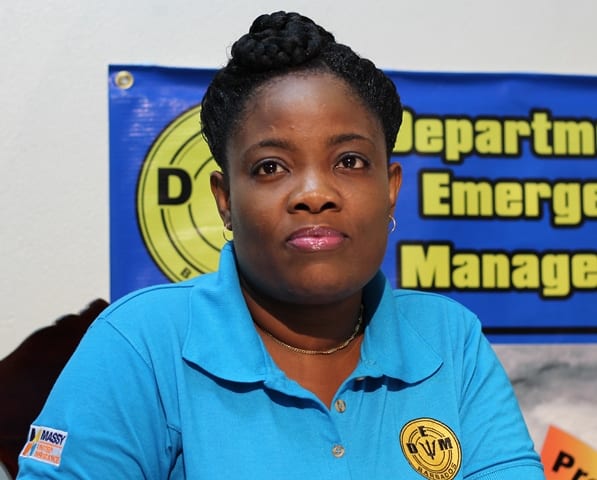
While the creation of a policy for multi-hazard early warning systems is critical, the effective implementation of that policy is key to building resiliency in the face of multiple hazards occurring.
This is according to Director of the Department of Emergency Management (DEM), Kerry Hinds, who was speaking during the final consultation workshop: Facilitated Policy Implementation Stakeholder Consultation, held yesterday, in the Warrens Suite, Baobab Towers, Warrens, St Michael.
Ms. Hinds noted that the development of the Multi-Hazard Early Warning Systems Policy for Barbados was a “great achievement” and one of the seven global targets, specifically Target G, set by The Sendai Framework for Disaster Risk Reduction 2015 to 2030.
She noted that nationally “we have articulated and highlighted the importance of multi-hazard early warning systems to assist us with achieving our vision of a more resilient Barbados and reducing vulnerability to hazards.”
However, the Director stressed that without timely, efficient and effective implementation, policies become useless. And, she urged that in the creation of these, there should be a special focus on the considerations necessary to implement policies.
While also stating it was essential to link multi-hazard early warning systems to the larger development agenda, Ms. Hinds told workshop participants they were now tasked with ensuring “Barbados possesses a policy implementation plan, which is relevant and forward looking, is also adaptable and flexible to the needs of the population, which would transition the island to being a sustainable resilient nation.”
Additionally, the DEM Director urged them to consider several points when having discussions on ways to best implement the policy. She noted these included: what are our individual agency organisational roles and responsibilities in the implementation environment; what strategies are required at this stage to advance the process and add value to what we have collectively achieved thus far; what will be our key areas of focus, and what will we need to do to maintain the policy or programme going forward’.
With the policy being successfully drafted and the discussion surrounding implementation taking place, Ms. Hind pointed out that continued commitment by all agencies involved was necessary to its successful implementation and sustainability. Emphasizing that she looked forward to their continued commitment, she thanked all organisations for contributing to the development of policy, adding that it was a national priority which seeks to build the country’s resiliency to hazards.
Caribbean Disaster Emergency Management’s (CDEMA) Programme Manager, Preparedness and Response, Joanne Persad, stressing that a hazard could occur at any time, said it had been observed that hazards were interconnected and one hazard could have a cascading effect on another.
“Countries, and in this case Barbados, must become more adept to understanding the interconnectedness of the hazards across the socio-economic and environmental systems. The possible vulnerability of individuals, communities and societies must be understood, as well as the potential impact of these hazards, to provide populations with the best possible reliable, targeted guidance and advanced warnings to take the necessary action. Communities must be enabled with the capacity to prepare for a reasonable worst-case scenario,” Ms. Persad emphasised. On behalf of CDEMA, Ms. Persad commended Barbados for forging ahead with the development of the critical national policy amid the challenging COVID-19 pandemic.
